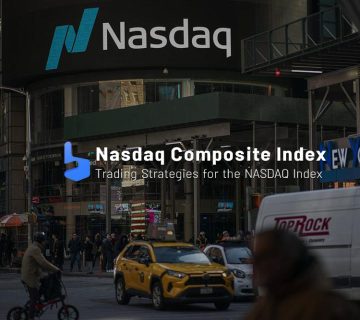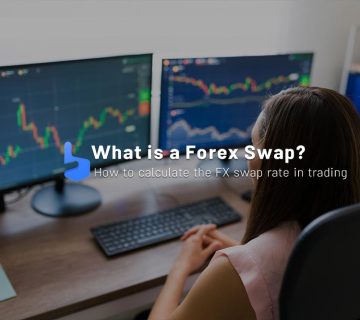What you are about to read:
In the dynamic and often unpredictable world of forex trading, one significant challenge traders face is spread widening. The spread, which is the difference between the bid and ask prices of a currency pair, represents the cost of executing a trade. While typically narrow in stable market conditions, spreads widen significantly due to factors like market volatility, liquidity issues, and major economic or geopolitical events.
Understanding the causes and effects of spreads is crucial for forex traders aiming to optimize their trading strategies and manage their costs effectively. This article by Brokerland to learn Forex trading explores the phenomenon of spread widening, examining why they occur, how they impact traders, and strategies to minimize their effects.
What does spread widening mean?
In forex, spread widening refers to an increase in the difference between the bid and ask prices of a currency pair. The bid price is the highest price a buyer is willing to pay for a currency, while the ask price is the lowest price a seller is willing to accept. Essentially, the spread is the cost of trading, and a wider spread means higher costs for traders. Spreads can widen due to various factors, including market volatility, low liquidity, and economic or geopolitical events.
One main reason for widening spreads is market volatility. During periods of high volatility and kill zones, such as major economic announcements, political events, or sudden market shocks, uncertainty and rapid price movements can cause spreads to widen. Brokers increase spreads to account for the increased risk and potential for rapid price changes that could lead to losses. For traders, this means higher transaction costs and potentially less favorable trading conditions.
Low liquidity is another important factor that can cause spreads to widen. Liquidity refers to the ease with which an asset can be bought or sold without affecting its price. In forex markets, liquidity is usually higher during peak trading hours when major financial centers are open. However, during off-hours or with less-traded currency pairs, liquidity can decrease, leading to wider spreads. In such conditions, brokers widen spreads to manage the risk associated with lower trading volumes and the difficulty of executing large orders without significant price changes.
Economic and geopolitical events can also lead to spread widening. Major events like central bank meetings, interest rate announcements, inflation rates, unemployment rates, elections, or geopolitical tensions can create market uncertainty.
This uncertainty can make traders more cautious, reduce liquidity, and increase volatility. Forex brokers respond to this by widening spreads to protect themselves against the possibility of rapid and unpredictable price changes. For traders, being aware of these events and their potential impact on spreads is crucial for managing trading costs and risks effectively.
Why do spreads widen?
spreads widening occur for several reasons, primarily related to market conditions and brokers’ risk management strategies. Understanding why spreads widen can help traders navigate the complexities of forex trading more effectively. Here are the main factors influencing spread widening:
- Market Volatility: One of the most common reasons for increased spreads is market volatility. During periods of significant price swings, such as major economic announcements (e.g., interest rate decisions, employment reports) or unexpected geopolitical events (e.g., elections, conflicts), uncertainty and rapid price movements lead brokers to widen spreads. Spread widening helps brokers mitigate the risk of rapid and unpredictable price changes that could result in losses for them.
- Liquidity Issues: Liquidity, or the ease of buying or selling a currency without affecting its price, plays a significant role in spread widening. During periods of low liquidity, such as holidays, weekends, or outside main trading hours and forex sessions, there are fewer active traders in the market, resulting in lower liquidity. In such conditions, forex brokers increase spreads to manage the risk associated with lower trading volumes and the potential difficulty of executing large orders without significant price changes.
- Economic and Geopolitical Events: Major economic and geopolitical events can create significant uncertainty in the markets, leading to spread widening. For instance, events like central bank policy meetings, major political elections, or geopolitical tensions can make traders adopt a wait-and-see approach, reducing overall market activity and liquidity. Brokers, anticipating potential rapid price changes and decreased trading activity, widen spreads to protect themselves against the increased risk of losses.
- Broker Risk Management: Brokers adjust spreads as part of their risk management strategy. When they perceive increased risk from any of the above factors, they widen spreads to ensure they can cover potential adverse market movements. This approach helps brokers maintain their financial stability and continue providing liquidity to traders even during market stress.
Understanding these reasons for spread widening can help traders better anticipate changes in trading costs and adjust their strategies accordingly. By knowing when spreads are likely to widen, traders can plan their trades to avoid higher costs and manage their risk more effectively.
Does this increase in spreads occur with all brokers, and is it the same for all?
Yes, the spread widening occurs with all forex brokers, but the extent and timing can vary significantly between brokers. For instance, the amount and timing of spread widening in a broker like Alpari might differ from that in Amarkets. These variations are influenced by several factors, including the broker’s business model, the liquidity providers they use, and their specific risk management strategies. Here’s a deeper look at how and why these differences in spread widening occur:
Types of Brokers: There are different types of brokers, primarily classified as market makers and Electronic Communication Network (ECN) brokers. Market makers set their own spreads and often increase them significantly during volatile periods to manage risk. On the other hand, ECN brokers aggregate prices from multiple liquidity providers, which usually results in narrower spreads. However, even ECN brokers can experience widened spreads during times of low liquidity or high volatility because their liquidity providers adjust their prices.
Liquidity Providers: The source of liquidity plays a crucial role in spread widening. Brokers that, like OmegaFinex or Fibo Group, have access to a larger and more diverse set of liquidity providers typically can offer more stable spreads. During periods of market volatility or low liquidity, if a broker relies on a limited number of liquidity providers, the spreads may widen more compared to brokers with a broader range of liquidity sources.
Risk Management Practices: Each broker has its own risk management policies that dictate how they adjust spreads in response to market conditions. Some brokers might increase spreads more aggressively during uncertain times to protect themselves, while others might absorb some of the risk to maintain competitive spreads and attract traders. This means that even under identical market conditions, different brokers might exhibit varying degrees of spread widening.

While spread widening is common among all brokers in certain market conditions, the extent and timing can vary. Traders should carefully choose their brokers by considering factors such as broker type, liquidity sources, risk management policies, and technological capabilities to ensure they can effectively manage spread widening.
It’s also beneficial for traders to monitor their broker’s performance in different market conditions and read reviews or conduct tests to see how spreads behave in practice.
How to Reduce the Impact of Spread Widening in Trading
To avoid or mitigate the impact of spread widening in forex trading, traders can implement several strategies and practices. Here are some key approaches:
- Choose the Right Broker: Selecting a broker known for offering tight and stable spreads, especially during market volatility, is crucial. ECN brokers usually offer narrower spreads compared to market makers because they aggregate prices from multiple liquidity providers. Additionally, brokers with advanced technology and a wide range of liquidity sources can provide more consistent spreads, resulting in less exposure to spread widening for traders.
- Trade During Peak Hours: Market liquidity is higher during the overlap of major sessions, like the London-New York overlap. Trading during these peak hours can help you benefit from narrower spreads due to higher trading volumes and increased market activity. Avoid trading during holidays, weekends, or off-peak hours when liquidity is low and the risk of spread widening is higher.
- Monitor the Economic Calendar: Be aware of significant economic events and forex news releases that can cause market volatility and lead to spread widening. Economic calendars provide schedules for important announcements like central bank meetings, employment reports, and GDP releases, available on sites like FX Daily, TradingView, Forex Factory, or through brokers like LiteForex, OmegaFinex, and Orbex. By avoiding trading around these high-impact events, you can reduce the risk of encountering spread widening.
- Use Limit Orders: Instead of using market types of forex orders , which are executed at the best available price and are more prone to spread widening, use limit orders. Limit orders specify the exact price at which you want to buy or sell a currency pair. While there’s no guarantee your order will be filled, it allows you to avoid unexpected spread widening and trade at your desired price level.
- Diversify Trading Instruments: Spread widening can vary between different currency pairs. Major pairs (like EUR/USD, GBP/USD) generally have higher liquidity and narrower spreads compared to minor and exotic pairs (like USD/TRY, EUR/SGD). By focusing on major and minor pairs with higher liquidity, you can reduce the impact of spread widening.
- Consider Premium Accounts and Brokerage Services: Some brokers offer premium accounts or VIP services that provide better spreads and reduced trading costs in exchange for minimum deposits or trading volumes. If you trade frequently or with larger amounts, evaluate these options, as they can offer more stable trading conditions and lower spread widening.
By implementing these strategies, traders can reduce the impact of spread widening, manage their trading costs more effectively, and enhance their overall trading experience.
Conclusion
Spreads widening, like slippage, are an inherent aspect of forex trading that can significantly impact trading costs and overall market experience. By understanding the factors that contribute to spread widening, such as market volatility, liquidity fluctuations, and major economic events, traders can better anticipate and navigate these changes.
Implementing strategies such as choosing the right broker, trading during peak hours, using limit orders, and focusing on major currency pairs can help mitigate the impact of spread widening. Ultimately, staying informed and adapting to market conditions is crucial for managing trading costs and achieving success in the forex market. By being proactive and strategic, traders can turn the challenges of spread widening into opportunities for improving their trading performance.












